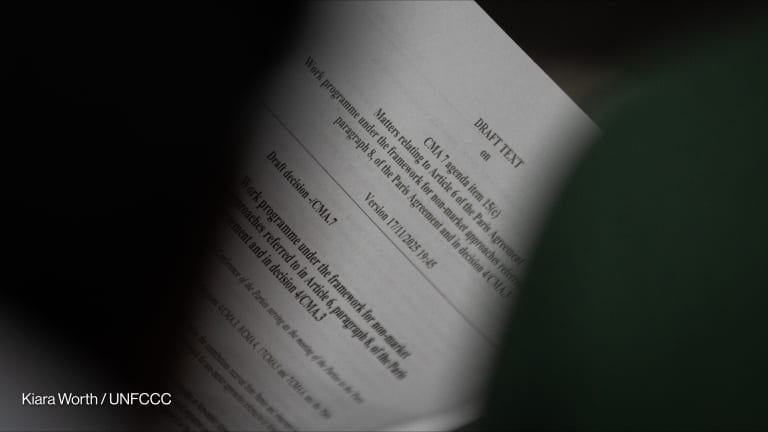
BRUSSELS — The European Investment Bank will not take on any new fossil fuel investments from 2022, after European Union member states voted through a new energy policy that climate campaigners hope will put pressure on other development banks.
“The EIB will no longer consider new financing for unabated, fossil fuel energy projects, including gas, from the end of 2021 onwards,” the bank announced Thursday, following a marathon meeting of its board of directors.
“When the world’s biggest public lender decides to largely ditch fossil fuels, financial markets across the globe will take notice.”
— Kate Cahoon, Germany campaigner, 350.orgThe new strategy includes supporting climate and environment investments of €1 trillion ($1.1 trillion) from 2021 to 2030, aiming to see this sector hit 50% of EIB operations from 2025 onward, and aligning all its financing activities with the Paris Agreement by the end of 2020. It also sets an emissions performance standard of 250 grams of CO2 per kilowatt-hour for energy projects it supports, replacing the current 550-gram CO2/kWH standard.
In a statement, EIB President Werner Hoyer called the new policy “a quantum leap in its [EIB’s] ambition,” as part of “the most ambitious climate investment strategy of any public financial institution anywhere.”
The plan initially encountered resistance from some EU member states, including powerhouse Germany, and the European Commission, amid worries about completely ending support for gas projects. Of the €13.4 billion EIB has lent to fossil fuel infrastructure since 2013, more than €9 billion targeted natural gas pipelines and distribution networks.
The board of directors failed to reach a deal in October, prompting behind the scenes negotiations and public lobbying in the lead up to Thursday’s meeting. Andrew McDowell, EIB vice president in charge of energy, wrote to directors last week, proposing a compromise that would extend the deadline for supporting some new gas projects from the end of 2020 to the end of 2021. That drew criticism from civil society representatives, who said that any delay in the cut off point risked locking in gas projects for decades to come.
“If you put in billions into an infrastructure, the infrastructure needs to be supplied. You are not going to put in an infrastructure that is not being used,” Bas Eickhout, vice-chair of the Greens group in the European Parliament told reporters earlier this week. “That’s what we mean with lock-in. You are creating a very uneven playing field with renewables that also then need to be promoted.”
In the end, both Germany and the European Commission voted in favor of the new policy Thursday, along with 18 other states. Six countries abstained and three voted against — Poland, Romania, and Hungary. The bank said that members representing more than 90% of its capital approved the new policy.
The move won praise from climate campaigners, who said the onus was now on other development banks to completely cease funding gas projects.
“When the world’s biggest public lender decides to largely ditch fossil fuels, financial markets across the globe will take notice,” Kate Cahoon, Germany campaigner at 350.org said in a statement. “This is the beginning of the end of climate-wrecking fossil fuel finance.”
Counter Balance, an NGO that follows development banks, added that: “The sun is setting on fossil fuels subsidies. Both the [European Bank for Reconstruction and Development] and the World Bank should follow in the EIB’s footsteps and divest from fossil fuels.”
Xavier Sol, director of Counter Balance, said that this “great step forward for the EIB” now needed to be followed by updates to the bank’s overarching climate and transport strategies.
“Civil society will keep a vigilant eye on these upcoming challenges,” Sol said.








